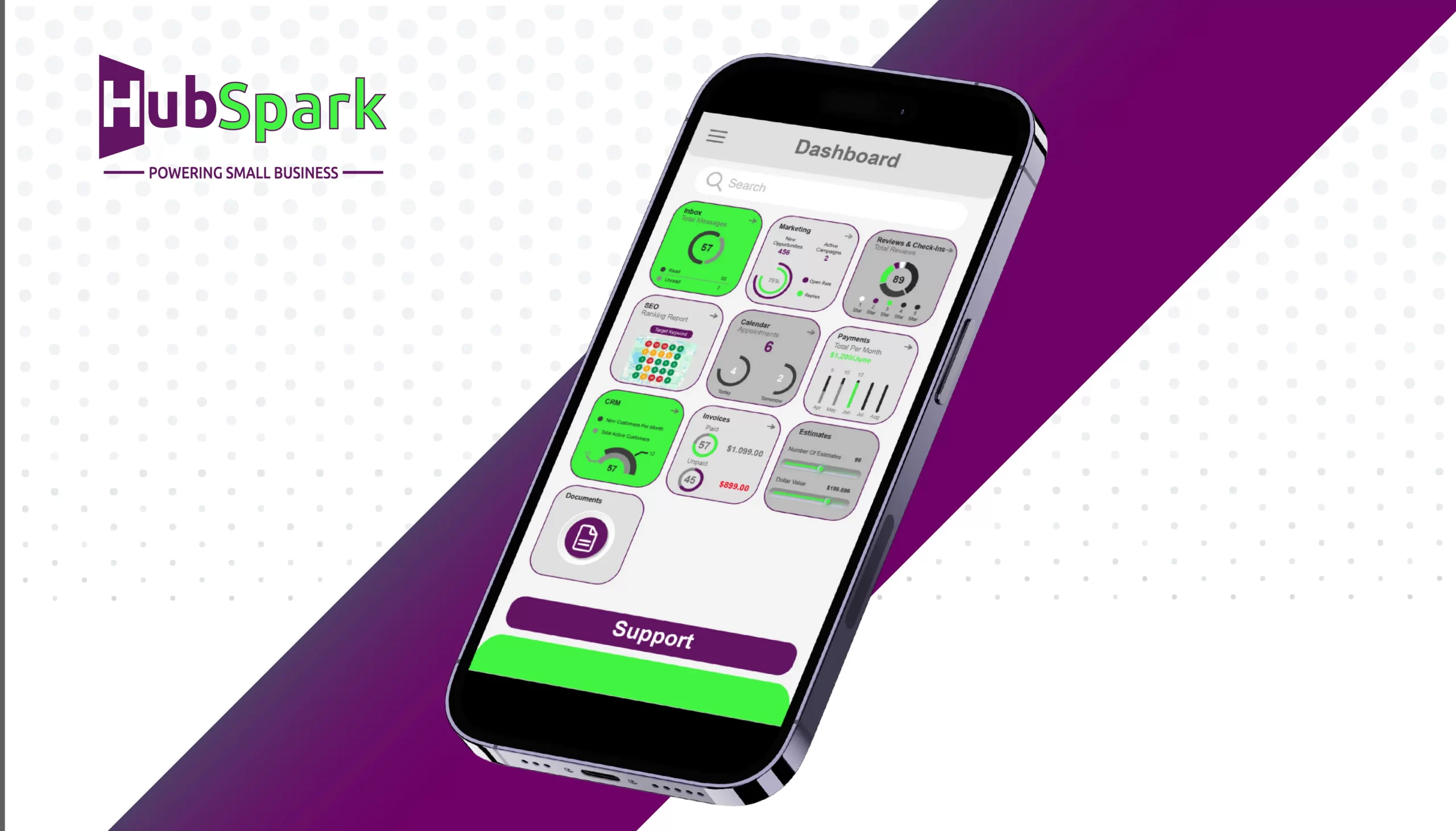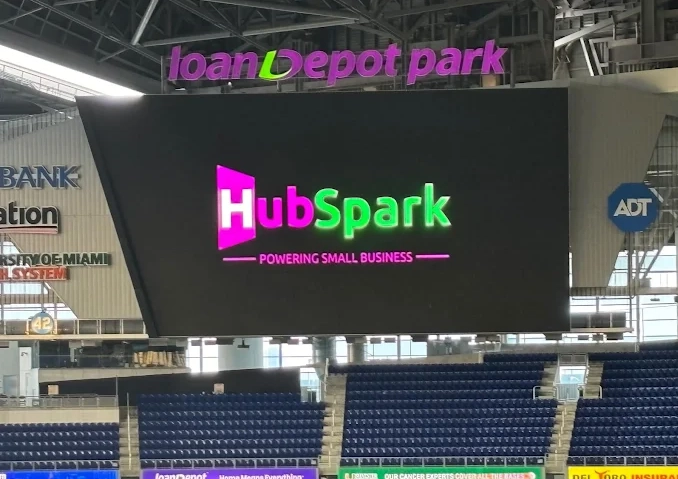Why Small Businesses Should Use HubSpark as Their CRM

Key Takeaways
Small businesses today operate in a competitive environment where customer relationships are central to survival and growth. Customer Relationship Management (CRM) platforms play a crucial role in enabling these companies to build, nurture, and retain customer connections. HubSpark provides a modern CRM solution that is built with the needs and challenges of small businesses in mind. From affordability to ease of use, HubSpark offers compelling reasons for small companies to consider it as their CRM of choice. This article explores what sets HubSpark apart, the benefits it offers, and how it supports small business growth.
What is HubSpark?
Hubspark offers an integrated customer relationship management solution that helps businesses manage contacts, automate sales, track customer interactions, and streamline marketing efforts. Unlike large enterprise-focused CRM systems, HubSpark aims to balance powerful CRM features with user-friendly design, specifically targeting the resource and budget constraints common in small businesses. It brings together core CRM functionalities such as lead tracking, pipeline management, and task automation in a single CRM module.


Key Features of HubSpark for Small Businesses
The fully functional HubSpark CRM is incredibly powerful, yet simple to use. Each communication with a customer is automatically logged into the CRM so that you have a recorded history.
When considering a CRM, core features are often a deciding factor for small business owners. HubSpark provides an array of tools that address the unique pain points small businesses face when managing customers.
Below are several notable features that make HubSpark suitable for small businesses:
- Contact and Lead Management: HubSpark allows effortless organization, segmentation, and searching of leads and customers in a central database, reducing data silos and improving sales follow-up.
- Sales Pipeline Visualization: HubSpark CRM module provides a visual sales pipeline, enabling teams to see deal stages and identify where prospects are stalling, which helps drive focused sales activity.
- Task and Activity Automation: Routine tasks such as follow-up emails, reminders, and lead assignments can be automated, freeing resources and minimizing the risk of missed opportunities.
Each of these features is developed with an emphasis on simplicity, so even users with little technical knowledge can get started quickly and effectively.

Benefits of HubSpark for Small Businesses
Hubspark delivers a range of benefits that directly address both the everyday needs and long-term goals of small businesses.
These key advantages are widely recognized among its users:
- Affordability: Compared to larger CRM platforms with high licensing fees and complex feature bloat, HubSpark offers competitive pricing tailored for limited budgets while still providing robust functionality.
- Ease of Use: HubSpark’s intuitive interface shortens the learning curve, allowing teams to implement the system swiftly and make the most of its features with minimal training.
- Time Savings: By automating repetitive tasks and centralizing customer information, staff can spend more time on high-value activities such as nurturing leads and closing deals.
- Scalability: While optimized for small business needs, HubSpark is built to grow with your company, allowing you to add features or users as your business scales.
- Enhanced Customer Relationships: Access to organized customer data and segmented communications tools improves the ability to personalize service, resulting in higher satisfaction and retention.
These benefits can directly improve the bottom line and help small businesses punch above their weight in competitive markets.

HubSpark vs. Other CRM Platforms
Selecting the right CRM involves evaluating how each platform aligns with your company’s size, goals, and budget. HubSpark differentiates itself by focusing on the realities small businesses face: limited IT resources, rapid shifts in priorities, and growth constraints.
In comparison to enterprise-oriented CRMs, HubSpark avoids unnecessary complexity and prioritizes features that drive immediate, practical value. For companies transitioning from spreadsheets or manual tracking, HubSpark’s setup and migration process is notably faster and less intimidating.
Another point of contrast is customer support. HubSpark offers specialized onboarding and support channels for small business clients, helping ensure issues are resolved quickly and painlessly.
Real-World Impact of Using HubSpark
Many small businesses report tangible outcomes after adopting HubSpark. Business owners frequently cite improvements in sales organization, customer retention rates, and marketing ROI.
For example, sales teams moving from email-based tracking to HubSpark often find it easier to spot follow-up opportunities, reducing lost leads. Similarly, automating recurring communication helps businesses maintain engagement without overwhelming staff resources.
Ultimately, HubSpark’s focus on user experience and actionable data creates a framework for more strategic decision-making, even in companies with lean teams.


Choosing and Implementing HubSpark
The decision to choose HubSpark as a customer relationship management software should be guided by a company’s unique needs and priorities. Getting the most from this powerful CRM begins with a thoughtful implementation process, which usually follows these general steps.
- Needs Assessment: Start by evaluating your current business processes, sales pipeline, and customer engagement strategies to identify where a CRM like HubSpark can add the most value.
- System Setup: Configure your core settings in HubSpark, import existing contact and deal data, and customize fields to reflect your workflow.
- Team Onboarding: Provide access to your staff members to use the HubSpark CRM where they can also access HubSpark support if needed.
- Ongoing Optimization: Regularly review your usage patterns and performance analytics to identify further automations or adjustments that can deliver even greater efficiency.

Common Challenges and How HubSpark Addresses Them
Small businesses often face several barriers when adopting any new software platform. HubSpark incorporates features and support mechanisms to minimize these hurdles.
First, many employees worry about the complexity of new systems. HubSpark’s clean interface and guided how-to video tutorials reduce learning anxiety and enable non-technical users to become productive rapidly.
Second, concerns over data migration are addressed through assisted import tools and dedicated onboarding support, which minimizes data loss and interruption to operations.
Are You Ready to Implement a New CRM for Your Small Business? Contact HubSpark to Get Started!
For small businesses seeking to professionalize customer relationship management, improve sales processes, and build lasting customer relationships, HubSpark represents a powerful CRM solution. Its user-friendly design, affordability, and meaningful automation features focus on the real-world challenges small companies face. By choosing and implementing HubSpark thoughtfully, small businesses can position themselves for sustained growth and increased competitiveness. If your small businesses is ready to implement a new CRM, contact HubSpark today!

Frequently Asked Questions
Most small businesses can have HubSpark set up and operational within a day or two, thanks to its powerful CRM features and user-friendly migration tools. The exact timeframe may vary based on data complexity and the level of customization desired.
Yes, HubSpark employs industry-standard encryption and security protocols to protect data both in transit and at rest, ensuring that customer relationship management is secure. Regular software updates and compliance with data privacy regulations ensure that customer information remains safe.
Absolutely! HubSpark provides more than just a powerful CRM system; you also have access to a bevy of other modules and features as your company grows. This scalability ensures you won’t outgrow HubSpark as you achieve greater business success.

Request a Free Demo
(no credit card required)

Small businesses today operate in a competitive environment where customer relationships are central to survival and growth. Customer Relationship Management (CRM) platforms play a crucial role in enabling these companies to build, nurture, and retain customer connections. HubSpark provides a modern CRM solution that is built with the needs and challenges of small businesses in mind. From affordability to ease of use, HubSpark offers compelling reasons for small companies to consider it as their CRM of choice. This article explores what sets HubSpark apart, the benefits it offers, and how it supports small business growth.
What is HubSpark?

Hubspark offers an integrated customer relationship management solution that helps businesses manage contacts, automate sales, track customer interactions, and streamline marketing efforts. Unlike large enterprise-focused CRM systems, HubSpark aims to balance powerful CRM features with user-friendly design, specifically targeting the resource and budget constraints common in small businesses. It brings together core CRM functionalities such as lead tracking, pipeline management, and task automation in a single CRM module.
Key Features of HubSpark for Small Businesses

The fully functional HubSpark CRM is incredibly powerful, yet simple to use. Each communication with a customer is automatically logged into the CRM so that you have a recorded history.
When considering a CRM, core features are often a deciding factor for small business owners. HubSpark provides an array of tools that address the unique pain points small businesses face when managing customers.
Below are several notable features that make HubSpark suitable for small businesses:
- Contact and Lead Management: HubSpark allows effortless organization, segmentation, and searching of leads and customers in a central database, reducing data silos and improving sales follow-up.
- Sales Pipeline Visualization: HubSpark CRM module provides a visual sales pipeline, enabling teams to see deal stages and identify where prospects are stalling, which helps drive focused sales activity.
- Task and Activity Automation: Routine tasks such as follow-up emails, reminders, and lead assignments can be automated, freeing resources and minimizing the risk of missed opportunities.
Each of these features is developed with an emphasis on simplicity, so even users with little technical knowledge can get started quickly and effectively.
Benefits of HubSpark for Small Businesses

Hubspark delivers a range of benefits that directly address both the everyday needs and long-term goals of small businesses.
These key advantages are widely recognized among its users:
- Affordability: Compared to larger CRM platforms with high licensing fees and complex feature bloat, HubSpark offers competitive pricing tailored for limited budgets while still providing robust functionality.
- Ease of Use: HubSpark’s intuitive interface shortens the learning curve, allowing teams to implement the system swiftly and make the most of its features with minimal training.
- Time Savings: By automating repetitive tasks and centralizing customer information, staff can spend more time on high-value activities such as nurturing leads and closing deals.
- Scalability: While optimized for small business needs, HubSpark is built to grow with your company, allowing you to add features or users as your business scales.
- Enhanced Customer Relationships: Access to organized customer data and segmented communications tools improves the ability to personalize service, resulting in higher satisfaction and retention.
These benefits can directly improve the bottom line and help small businesses punch above their weight in competitive markets.
HubSpark vs. Other CRM Platforms

Selecting the right CRM involves evaluating how each platform aligns with your company’s size, goals, and budget. HubSpark differentiates itself by focusing on the realities small businesses face: limited IT resources, rapid shifts in priorities, and growth constraints.
In comparison to enterprise-oriented CRMs, HubSpark avoids unnecessary complexity and prioritizes features that drive immediate, practical value. For companies transitioning from spreadsheets or manual tracking, HubSpark’s setup and migration process is notably faster and less intimidating.
Another point of contrast is customer support. HubSpark offers specialized onboarding and support channels for small business clients, helping ensure issues are resolved quickly and painlessly.
Real-World Impact of Using HubSpark

Many small businesses report tangible outcomes after adopting HubSpark. Business owners frequently cite improvements in sales organization, customer retention rates, and marketing ROI.
For example, sales teams moving from email-based tracking to HubSpark often find it easier to spot follow-up opportunities, reducing lost leads. Similarly, automating recurring communication helps businesses maintain engagement without overwhelming staff resources.
Ultimately, HubSpark’s focus on user experience and actionable data creates a framework for more strategic decision-making, even in companies with lean teams.
Choosing and Implementing HubSpark

The decision to choose HubSpark as a customer relationship management software should be guided by a company’s unique needs and priorities. Getting the most from this powerful CRM begins with a thoughtful implementation process, which usually follows these general steps.
- Needs Assessment: Start by evaluating your current business processes, sales pipeline, and customer engagement strategies to identify where a CRM like HubSpark can add the most value.
- System Setup: Configure your core settings in HubSpark, import existing contact and deal data, and customize fields to reflect your workflow.
- Team Onboarding: Provide access to your staff members to use the HubSpark CRM where they can also access HubSpark support if needed.
- Ongoing Optimization: Regularly review your usage patterns and performance analytics to identify further automations or adjustments that can deliver even greater efficiency.
Common Challenges and How HubSpark Addresses Them

Small businesses often face several barriers when adopting any new software platform. HubSpark incorporates features and support mechanisms to minimize these hurdles.
First, many employees worry about the complexity of new systems. HubSpark’s clean interface and guided how-to video tutorials reduce learning anxiety and enable non-technical users to become productive rapidly.
Second, concerns over data migration are addressed through assisted import tools and dedicated onboarding support, which minimizes data loss and interruption to operations.
Are You Ready to Implement a New CRM for Your Small Business? Contact HubSpark to Get Started!

For small businesses seeking to professionalize customer relationship management, improve sales processes, and build lasting customer relationships, HubSpark represents a powerful CRM solution. Its user-friendly design, affordability, and meaningful automation features focus on the real-world challenges small companies face. By choosing and implementing HubSpark thoughtfully, small businesses can position themselves for sustained growth and increased competitiveness. If your small businesses is ready to implement a new CRM, contact HubSpark today!
FAQ

1. How long does it take for a small business to get up and running with HubSpark?
Most small businesses can have HubSpark set up and operational within a day or two, thanks to its powerful CRM features and user-friendly migration tools. The exact timeframe may vary based on data complexity and the level of customization desired.
2. Is HubSpark secure enough for sensitive customer information?
Yes, HubSpark employs industry-standard encryption and security protocols to protect data both in transit and at rest, ensuring that customer relationship management is secure. Regular software updates and compliance with data privacy regulations ensure that customer information remains safe.
3. Can HubSpark grow with my business if I expand?
Absolutely! HubSpark provides more than just a powerful CRM system; you also have access to a bevy of other modules and features as your company grows. This scalability ensures you won’t outgrow HubSpark as you achieve greater business success.

 Demo
Demo